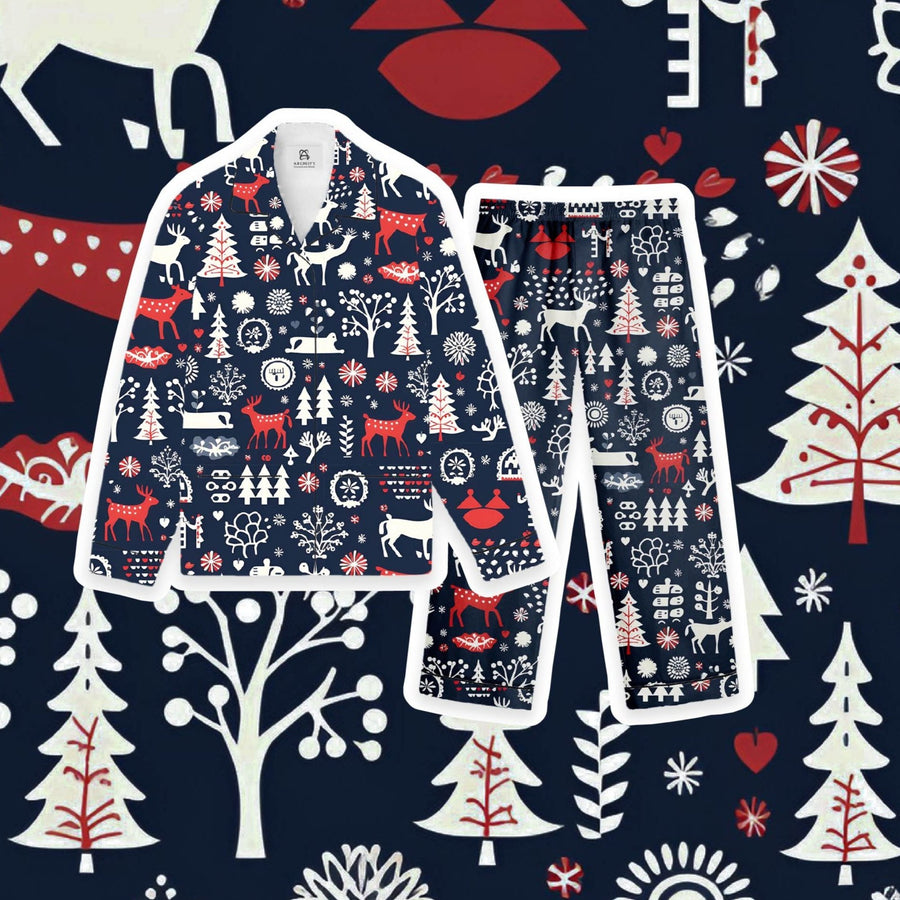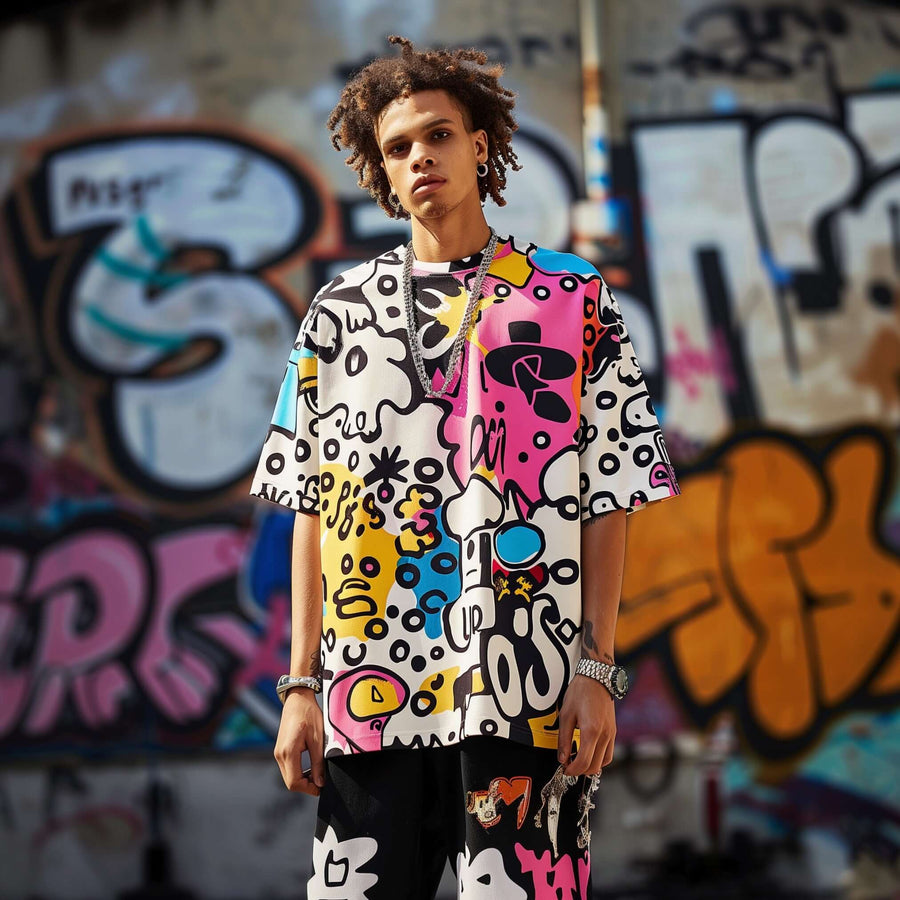Market Prospects of AI Customized Clothing: Exploring the Market Demand and Future Trends of AI Customized Clothing

In an era of rapid technological development, Artificial Intelligence (AI) is transforming various industries, and the fashion industry is no exception.AI customized apparel, as an emerging field that combines advanced technology and fashion design, is gradually attracting the attention of both consumers and businesses. This article will discuss the market demand for AI customized clothing and its future development trend.
Market Demand Analysis
Growth of Personalization Demand
With consumers' increasing pursuit of self-expression and personalized products, the market demand for customized clothing is growing rapidly. Traditional ready-to-wear production models are no longer able to satisfy consumers' desire for uniqueness and exclusivity.AI customized apparel generates one-of-a-kind designs for each user by using advanced algorithms that analyze the user's preferences, body type, and style. This highly personalized experience not only enhances consumers' sense of belonging and satisfaction, but also increases brand loyalty.
Specifically, the growth in consumer demand for personalization is reflected in the following areas:
-
The Rise of the Young Consumer:Millennials and Generation Z consumers are more inclined to display their individuality through clothing. They are willing to pay a premium for unique designs and personalized services, which provides a wide market space for AI customized clothing.

-
Influence of social media:Social media platforms such as Instagram and TikTok have become a trendsetter for fashion trends. Consumers want to stand out on social media with unique clothing designs, driving the demand for customized clothing.

-
Demand for Special Occasions:The demand for customized clothing is especially evident for special occasions such as weddings, parties, and celebrations, AI Custom Clothing can provide customized designs based on the occasion and personal preferences to meet the needs of consumers to dress for important moments.

Efficient and Convenient
Another significant advantage of AI customized clothing is efficiency and convenience. While the production process of traditional customized clothing is complicated, time-consuming and costly, the application of AI technology significantly improves efficiency and convenience.
-
Rapid design and production:Through AI algorithms, users can generate and modify designs in a short period of time, reducing the repeated communication and adjustments required in the traditional design process. This not only shortens the design cycle, but also reduces production costs.

-
Online customization platforms:Online customization platforms such as Archiify allow users to complete the entire customization process from the comfort of their home via the internet, without having to physically visit a physical store. From choosing a style, uploading a design, to placing an order and paying for it, everything can be done in a matter of minutes, greatly improving the convenience of the shopping experience.

-
Real-time Feedback and Improvement:AI technology can collect user feedback in real time and continuously improve design and service. Through big data analysis, AI can better understand user needs and provide more intimate and personalized services.

Environmental Protection and Sustainability
In the current context of increasing environmental awareness, the advantages of AI customized apparel in terms of environmental protection and sustainability are becoming increasingly apparent. The traditional apparel industry is characterized by a large amount of waste and environmental pollution due to inventory buildup and overproduction, which is effectively reduced by the on-demand production model of AI Customized Clothing.
- On-demand production:Customized garments are produced according to user demand, avoiding the inventory backlog and resource waste in traditional mass production. This not only reduces production costs, but also reduces the impact on the environment.
- Use of environmentally friendly materials:Many AI customization platforms focus on using environmentally friendly materials, further reducing the burden on the environment. For example, the use of eco-friendly materials such as organic cotton and recycled fibers is not only environmentally friendly, but also improves the added value of the products.
- Reducing carbon footprint:By optimizing the production process and supply chain management, AI custom apparel can effectively reduce carbon emissions. The use of AI technology for accurate demand forecasting and inventory management reduces unnecessary transportation and storage links, thus reducing the carbon footprint.
Diverse Market Demands
AI customized apparel not only meets the needs of individual consumers, but also shows strong market potential in a variety of fields such as enterprises and groups.
-
Corporate Group Customization:Many corporations and groups need to customize uniforms or active wear, and AI Customized Clothing can quickly provide high-volume, high-quality customization services to meet the needs of corporate groups.

-
Gift customization:Customized clothing is becoming more and more popular as personalized gifts. Especially in festivals, anniversaries and other special moments, customized clothing can be used as unique and meaningful gifts to meet consumers' personalized needs.

-
Cultural and creative industries:AI customized clothing is also increasingly widely used in cultural and creative industries. For example, film and TV dramas, performances, etc. require costumes of specific styles and designs, and AI customization can provide efficient and diversified solutions.

Future Trends
Continuous advancement in technology
The continuous advancement of AI technology will significantly boost the custom apparel industry.
- More Accurate Algorithms:In the future, AI algorithms will become more sophisticated and accurate to better understand and anticipate consumer needs. For example, by analyzing a user's social media data, shopping history and preferences, AI can generate designs that are more in line with personal tastes and current fashion trends.
-
3D Scanning and Virtual Fitting:With the advancement of 3D scanning technology, consumers can take a full-body 3D scan at home via their cell phones or other devices to generate accurate body shape data. Combined with virtual fitting technology, users can try on customized garments in a virtual environment and see how the garments actually look on them, thus making more intuitive choices and adjustments.

- Deep Learning and Personalized Recommendations:Using deep learning technology, AI can analyze a large amount of data to provide personalized recommendations for users. For example, by analyzing a user's browsing and purchasing behavior, AI can recommend designs that match the user's style, increasing user satisfaction and purchase conversion rates.
Expand to more categories
At present, AI customized clothing is mainly focused on T-shirts, jackets and other common clothing categories. In the future, AI customization is expected to expand to more categories to meet the diverse needs of consumers.
- Footwear and accessories:The demand for customization of footwear and accessories is increasing, and AI customization technology can be used to design unique shoes, bags, hats and other accessories, providing consumers with a complete personalized dress solution.
- Haute Couture:The demand for customized apparel is also growing in the high-end market. ai technology can help design and produce high-quality customized apparel, such as evening gowns and wedding dresses, to meet the needs of the haute couture market.
- Sportswear:sportswear has a high demand for functionality and comfort. ai customization technology can design the most suitable sportswear based on the user's sports habits and body data to improve sports performance and comfort.
Integration with other technologies
In the future, AI customized clothing will be deeply integrated with other cutting-edge technologies to provide a richer and more innovative experience.
-
Augmented Reality (AR) and Virtual Reality (VR):AR and VR technologies can be used for virtual fitting to provide an immersive shopping experience. Users can see the effect of wearing customized clothing, make real-time adjustments and modifications, and improve the fun and satisfaction of shopping through AR glasses or VR devices.

-
Internet of Things (IoT):IoT technology can connect smart clothing with users' daily lives. For example, smart garments embedded with sensors can monitor users' health data, such as heart rate and body temperature, and transmit the data to cell phone applications to realize the functions of health management and smart wear.

-
Blockchain technology:Blockchain technology can be used for supply chain management and traceability of customized clothing to ensure product transparency and credibility. Users can track the production process of garments through blockchain technology to understand the source of materials and production process, increasing trust and willingness to buy.

Social media and data-driven
With the growing influence of social media in the fashion industry, AI customized clothing can leverage social media and big data to drive design and marketing.
- Social media data analysis: By analyzing user comments, likes, and shares on social media, AI can identify current popular fashion trends and consumer preferences and quickly adjust design and production strategies.
- User-generated content (UGC): Users are encouraged to share their customized designs and wearing effects on social media, creating word-of-mouth effects and brand loyalty.UGC not only increases brand exposure, but also provides other users with design inspiration and references for purchasing decisions.
- Precise marketing: using big data analysis and AI technology, brands can conduct precise advertising and personalized marketing. For example, personalized and customized designs and offers are pushed based on users' browsing history and purchasing behavior, increasing marketing effectiveness and conversion rates.
Environmental protection and sustainable development
In the future, AI customized apparel will pay more attention to environmental protection and sustainable development, catering to consumer demand for environmentally friendly products.
- Circular economy: promote recycling and reuse of garments. ai technology can help design and produce recyclable garments to reduce waste and environmental pollution.
- Intelligent production: optimize the production process through AI technology to improve productivity and reduce energy consumption and carbon emissions. Use AI for intelligent forecasting and inventory management to avoid overproduction and inventory backlog and realize green production.
- Environmentally friendly materials: promote the use of environmentally friendly materials and renewable resources to reduce the impact on the environment. ai can help select and develop new environmentally friendly materials and improve the environmental performance and market competitiveness of products.
Conclusion
As an innovative force in the fashion industry, AI customized clothing shows a broad market prospect and unlimited development potential. With the continuous progress of technology and changes in consumer demand, AI customized clothing will usher in a more brilliant future. Through continuous exploration and innovation, AI customized clothing will not only meet consumer demand for personalization, efficiency and convenience, and environmental sustainability, but will also lead the fashion industry into a whole new era.









